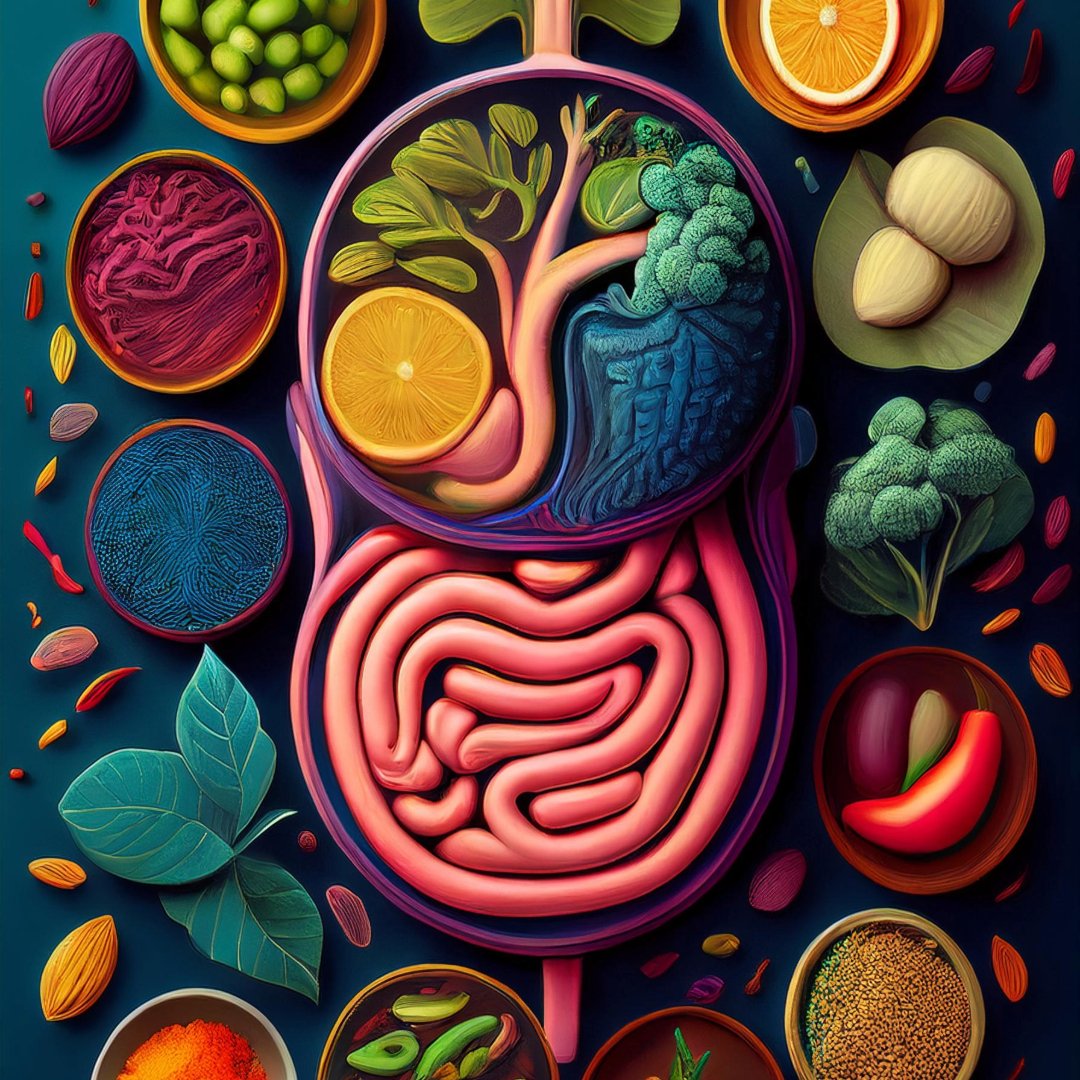The Gut-Brain Connection: An Ayurvedic Perspective on Digestive Wellness
The Gut Brain Connection in Ayurveda
In Ayurveda, the gut is considered the cornerstone of health. It's not just a place where we digest food; it's the seat of Agni (digestive fire), the transformative energy that fuels our entire being. A healthy gut is essential for absorbing nutrients, eliminating toxins, and supporting a strong immune system. But Ayurveda goes even further, recognizing a deep connection between the gut and our mental and emotional well-being.
Agni: The Key to Digestive Wellness
Agni, often translated as "digestive fire," is the driving force behind all metabolic processes in the body. It's responsible for breaking down food, assimilating nutrients, and eliminating waste. When Agni is strong and balanced, we experience optimal digestion, energy, and vitality. However, when Agni is weak or imbalanced, it can lead to a variety of digestive issues, such as bloating, gas, constipation, diarrhea, and indigestion.
The Gut-Brain Axis: A Mind-Body Connection
Ayurveda has long recognized the intricate connection between the gut and the brain. Modern science is now confirming what Ayurveda has known for centuries: the gut and the brain communicate through a complex network of nerves, hormones, and neurotransmitters. This connection, often referred to as the gut-brain axis, plays a crucial role in our mood, emotions, and cognitive function.
When our gut health is compromised, it can affect our mental and emotional well-being. Imbalances in gut bacteria have been linked to anxiety, depression, and even cognitive decline. Conversely, stress and emotional upset can also impact our digestion, creating a vicious cycle.
Ayurvedic Tips for Supporting Gut Health:
Prioritize Wholesome Foods: Choose fresh, whole, unprocessed foods that are appropriate for your constitution (Prakriti).
Eat Mindfully: Pay attention to your hunger cues and eat your meals in a relaxed and mindful environment. Avoid distractions while eating.
Chew Thoroughly: Digestion begins in the mouth. Chewing your food thoroughly helps to break it down and makes it easier for your digestive system to process.
Support Agni: Incorporate spices like ginger, cumin, and coriander into your cooking to help kindle Agni and support digestion.
Manage Stress: Practice stress-reducing techniques such as meditation, yoga, or deep breathing exercises.
Get Enough Sleep: Restful sleep is essential for gut health and overall well-being.
Consider Herbal Remedies: Certain Ayurvedic herbs, such as Triphala, fennel, and ginger, are traditionally used to support gut health and regularity. (Consult with a qualified Ayurvedic practitioner for personalized recommendations.)
The Importance of Personalized Approach:
Just as each individual is unique, so too is their gut microbiome. Ayurveda emphasizes a personalized approach to gut health, taking into account your individual constitution and any imbalances you may be experiencing. Consulting with a qualified Ayurvedic practitioner can help you identify the root cause of your digestive issues and create a personalized plan for restoring balance to your gut and your overall well-being.
Conclusion:
From an Ayurvedic perspective, gut health is not just about what we eat; it's about how we live. By prioritizing wholesome foods, practicing mindful eating, managing stress, and supporting Agni, we can cultivate a healthy gut, a balanced mind, and a vibrant life.
Want to learn more about how Ayurveda can support your gut health and overall well-being? Follow my blog and stay connected.
